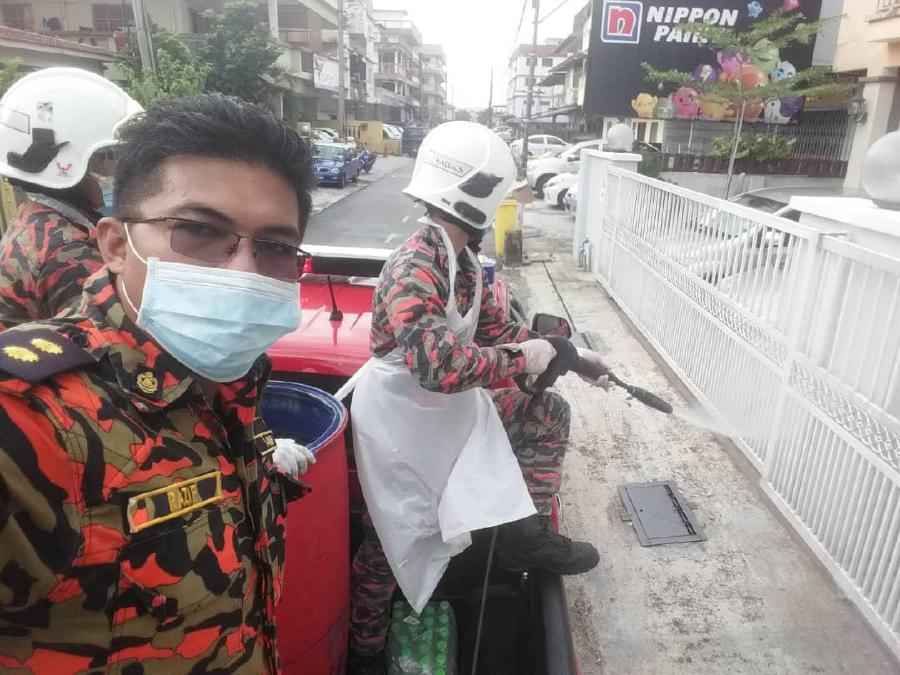Doctors Are Angry With The Ministry Of Women Over Its New SOP For Frontliners' Children
In a TASKA guidelines/SOP, the Ministry of Women, Family, and Community Development (KPWKM) allegedly recommends isolating frontliners' children because they are at "high risk of getting the (COVID-19) infection from their parents".
A group of 250 paediatricians are calling on the Prime Minister to rectify a "discriminatory" decision against the frontliners by the Ministry of Women, Family, and Community Development (KPWKM)
The paediatricians have signed a letter, which is supported by the Malaysian Paediatric Association, claiming that the Ministry of Women, in a TASKA guidelines/SOP, allegedly recommends isolating frontliners' children because they are at "high risk of getting the (COVID-19) infection from their parents".
According to the contents of the letter, the TASKA (childcare centres and nurseries) SOP was revised on Friday, 22 May 2020 and was circulated by KPWKM's Social Welfare Department (JKM) officers.
What does the revised TASKA SOP say?
Under Appendix 12, Section 2.1.2, it states:
"Anak-anak frontliners adalah berisiko tinggi untuk mendapat jangkitan daripada ibu bapa mereka. Tempat yang paling selamat untuk anak-anak ini adalah penjagaan di rumah. Walau bagaimanapun, sekiranya anak-anak petugas frontliners dihantar ke Taska, mereka perlu diasingkan daripada anak-anak yang lain."
English translation:
"Children of frontliners are at high risk of being infected by their parents. The safest place for these children is to be cared for at home. However, if the children of frontliners are sent to childcare, they need to be separated from other children."
The revised guide, first shared by CodeBlue, is publicly available via a PDF file.
While the group of paediatricians claim that they have confirmed with sources in the ministry that this is an official revised edition, Malaysiakini reported that it has yet to independently verify.
Separately, we are trying to reach out to the ministry.
The group says it's "a slap in the face of all the frontliners"
According to them, the revised SOP communicates that "yes we want your hard work, sacrifice, and risk to your own health and that of your family, but we are not going to be there for your children".
Taking note of the recommended segregation of the frontliners' children at TASKA, the group said that it overlooks the needs of "the very individuals who desperately require child care".
"We wonder if the Ministry of Health (MOH) was consulted regarding such a policy decision?" read the strongly worded letter, in which the group added that "frontliners will have to walk around like lepers".
One of the signatories of the letter, Dr Amar-Singh HSS, who is senior consultant paediatrician, said that the segregation plan is unfair
According to Dr Amar, the decision risks alienating frontliners and their children.
"It is a tough time for frontliners to serve and many have not seen their children, isolating themselves, or leaving their children with grandparents, to avoid infecting them," he was quoted as saying by Malaysiakini.
"Just remove it (the addition). By saying it, you are putting the idea in people's mind (that frontliners and their families pose infection risks) when you see them in LRTs, supermarkets, and others."
He also pointed out that the definition of frontliners is not limited to just healthcare workers.
"...but also the police, armed forces, food delivery drivers, supermarket workers, restaurant cooks, security guards, cleaners, garbage collectors, and many others who protect us and keep our nation functioning in this time of crisis," according to the paediatricians' letter.
"What message are we giving to the public at large about all frontliners? Are we to shun them in all contexts like outcasts? Such thinking can easily spread to other areas," the group cautioned.
"It also speaks of the way we have treated our migrant workers, their families and children recently, even after their service to our nation," they said while appealing to the Prime Minister to rectify this decision.

